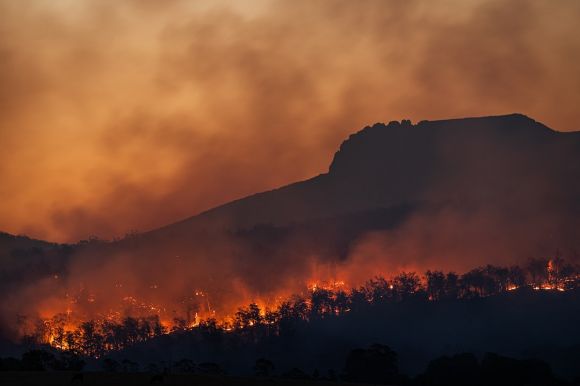Climate change is one of the most pressing issues of our time. It refers to long-term changes in temperature, precipitation patterns, and other aspects of the Earth’s climate system. These changes are primarily caused by human activities, such as burning fossil fuels, deforestation, and industrial processes. The impact of climate change is wide-ranging and affects various aspects of our lives, including the environment, economy, and public health. However, there are solutions that can help mitigate and adapt to these changes.
The Impact of Climate Change
Rising temperatures are the most noticeable effect of climate change. Over the past century, the Earth’s average temperature has increased by approximately 1.1 degrees Celsius. This may not seem significant, but it has far-reaching consequences. Heatwaves and droughts are becoming more frequent and intense, leading to water scarcity and agricultural losses. Rising sea levels are another consequence of climate change, which puts coastal communities at risk of flooding and erosion.
Climate change also disrupts ecosystems and biodiversity. Many species are struggling to adapt to the changing conditions, leading to habitat loss and extinction. Coral reefs, for example, are highly vulnerable to rising ocean temperatures, causing widespread bleaching and degradation.
The Economic Implications
The economic impact of climate change is significant. Extreme weather events, such as hurricanes and wildfires, result in billions of dollars in damages and reconstruction costs. Agricultural productivity is also affected, leading to food price volatility and potential food shortages. Additionally, the tourism industry, particularly in areas dependent on natural resources, may suffer as ecosystems degrade and become less attractive to visitors.
Public Health Concerns
Climate change has numerous implications for public health. Changing weather patterns can lead to the spread of infectious diseases, such as malaria and dengue fever, as disease-carrying vectors expand their range. Heatwaves pose a direct risk to human health, causing heat-related illnesses and deaths, particularly among vulnerable populations. Poor air quality, resulting from increased pollution and wildfires, also has adverse health effects, including respiratory problems and cardiovascular disease.
Mitigation and Adaptation Strategies
To address climate change, both mitigation and adaptation strategies are necessary. Mitigation focuses on reducing greenhouse gas emissions and slowing down the rate of climate change. This can be achieved through transitioning to renewable energy sources, improving energy efficiency, and promoting sustainable transportation and land use practices. International agreements, such as the Paris Agreement, aim to limit global warming to well below 2 degrees Celsius above pre-industrial levels.
Adaptation, on the other hand, involves preparing for and adapting to the changes that are already occurring. This includes implementing measures to protect vulnerable communities from the impacts of climate change, such as building resilient infrastructure, developing early warning systems, and improving water resource management. Adaptation also involves enhancing agricultural practices to withstand changing weather patterns and promoting nature-based solutions, such as reforestation and ecosystem restoration.
The Way Forward
Addressing climate change requires collaboration and collective action at all levels. Governments, businesses, and individuals all have a role to play in reducing greenhouse gas emissions and adapting to the changing climate. Transitioning to a low-carbon economy is not only necessary for the health of the planet but also presents economic opportunities, such as the creation of green jobs and the development of innovative technologies.
In conclusion, climate change is a global challenge with far-reaching consequences. It impacts various aspects of our lives, including the environment, economy, and public health. However, by implementing mitigation and adaptation strategies, we can work towards a more sustainable future. It is crucial that we act now to reduce greenhouse gas emissions and protect vulnerable communities from the impacts of climate change. Only through collective efforts can we tackle this urgent issue and ensure a livable planet for future generations.
